
JLI Expands in Russia and the Former Soviet Union
Adult Jewish education in the Russian language reaches a new milestone this month with the expansion of the Rohr Jewish Learning Institute to 30 locations in Russia and the former Soviet Union.
“The Russian culture is highly academic,” explains Rabbi Moti Weisberg, a JLI instructor in Moscow. “Intellectual achievement is taken very seriously. With these JLI Courses now available in Russian, we have a program that speaks to people who value academic achievement and want a very structured, organized way to learn.”
The course Soul Maps, an exploration of human potential based on Tanya, opened this month in 17 Russian locations plus 13 cities in Lithuania, Latvia, Estonia, Kazakhstan, Georgia, Ukraine and Belarus. It follows last year’s highly successful pilot course in 11 Russian-speaking cities.
To launch the expanded program, in January an international conference held in Moscow brought new instructors, JLI representatives, and members of the Federation of Jewish Communities of the CIS together for professional training and inspiration.
With the help of Russian Chief Rabbi Rabbi Berel Lazar, Mr. Mikhail Mirilashvili as sponsor, and Rabbis Eli Wolf and Dovid Mondshine as organizers, the two-day conference explored ways to adapt the JLI materials and program to Russian and Eastern European culture.
JLI affiliates from all 30 Russian-language chapters came together for practical training by Rabbi Zvi Pinski from Peterburg and Rabbi Chaim Danziger from Rostov, instructors for last year’s pilot program, as well as Rabbi Gershon Shnur and Rabbi Sholom Ber Herzel, two very successful instructors from Israel. Rabbi Dubi Rabinowitz flew to Moscow from JLI New York headquarters to help conduct the program and meet with instructors at the conference, who benefited from his considerable insight and experience as director of JLI’s International Division.
“The growth potential among Russian speakers is huge,” said Rabbi Mondshine, representing the Federation of the Federal Jewish Communities. “There are courses in Hebrew in English — but in Russian, this is the only opportunity to learn on a high academic level.
A second course, Medicine and Morals, is scheduled for the spring semester.



















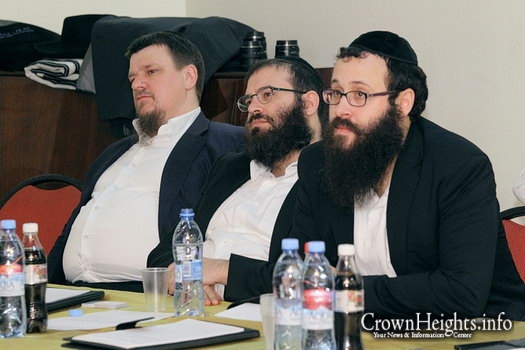
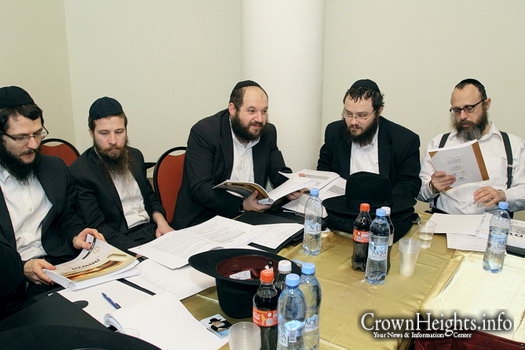


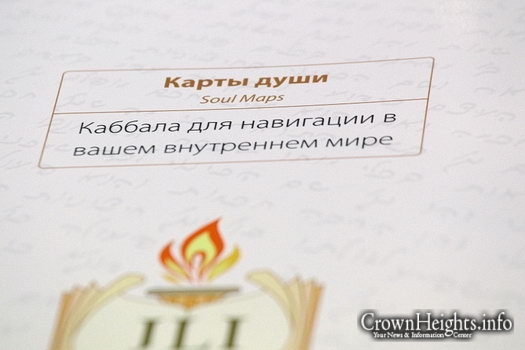




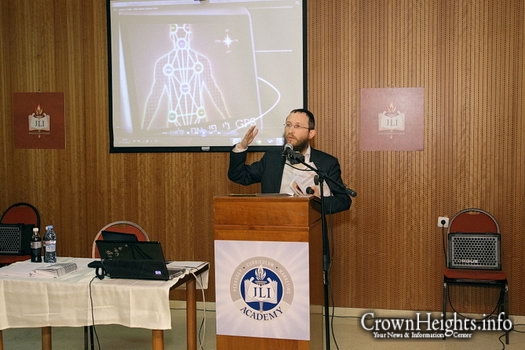
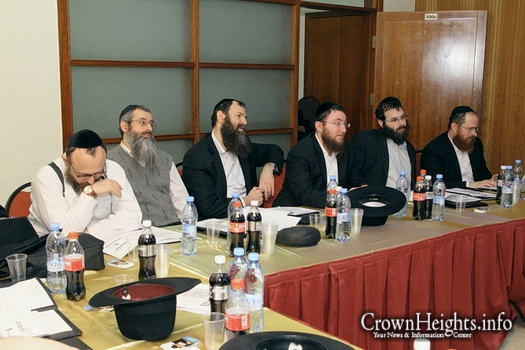


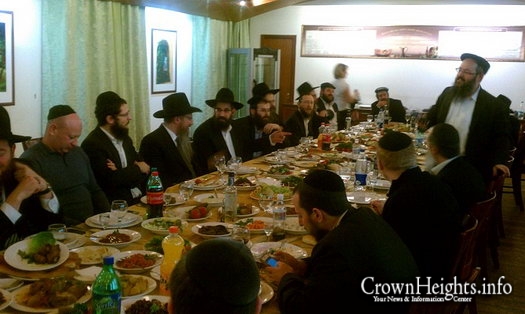


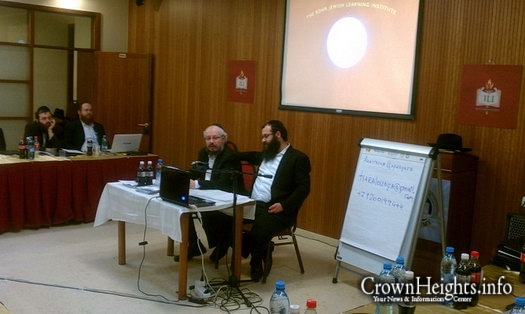


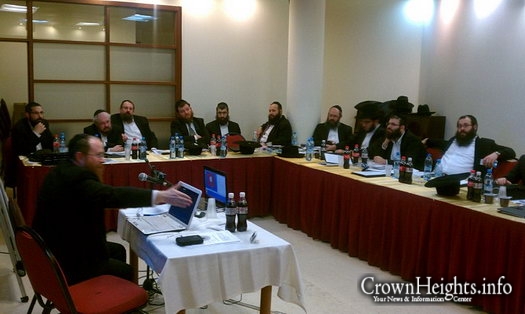












Wow!
Lots of food there!